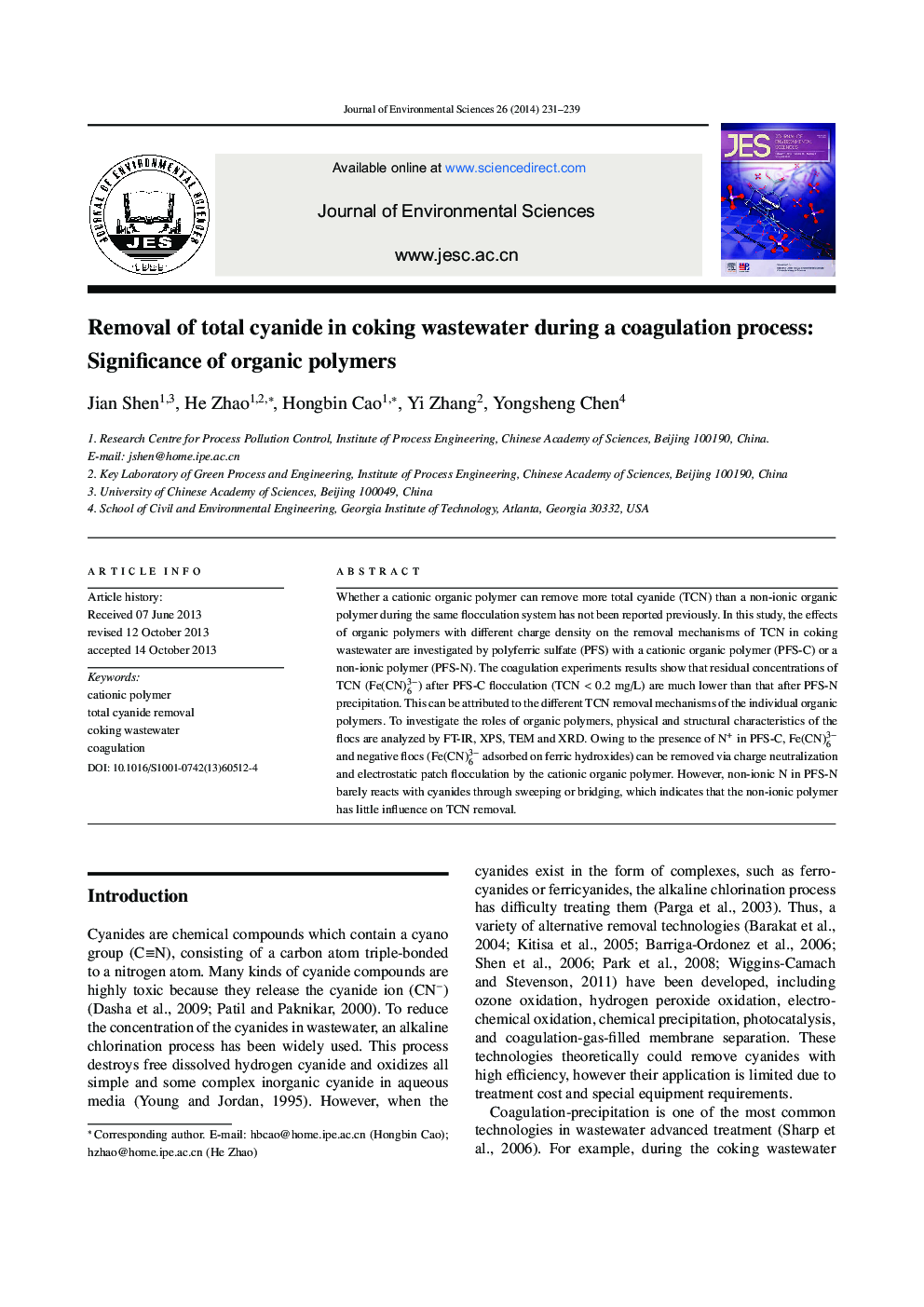| کد مقاله | کد نشریه | سال انتشار | مقاله انگلیسی | نسخه تمام متن |
|---|---|---|---|---|
| 4454640 | 1312489 | 2014 | 9 صفحه PDF | دانلود رایگان |
Whether a cationic organic polymer can remove more total cyanide (TCN) than a non-ionic organic polymer during the same flocculation system has not been reported previously. In this study, the effects of organic polymers with different charge density on the removal mechanisms of TCN in coking wastewater are investigated by polyferric sulfate (PFS) with a cationic organic polymer (PFS-C) or a non-ionic polymer (PFS-N). The coagulation experiments results show that residual concentrations of TCN (Fe(CN)3−6) after PFS-C flocculation (TCN < 0.2 mg/L) are much lower than that after PFS-N precipitation. This can be attributed to the different TCN removal mechanisms of the individual organic polymers. To investigate the roles of organic polymers, physical and structural characteristics of the flocs are analyzed by FT-IR, XPS, TEM and XRD. Owing to the presence of N+ in PFS-C, Fe(CN)3−6 and negative flocs (Fe(CN)3−6 adsorbed on ferric hydroxides) can be removed via charge neutralization and electrostatic patch flocculation by the cationic organic polymer. However, non-ionic N in PFS-N barely reacts with cyanides through sweeping or bridging, which indicates that the non-ionic polymer has little influence on TCN removal.
Journal: Journal of Environmental Sciences - Volume 26, Issue 2, 1 February 2014, Pages 231–239
